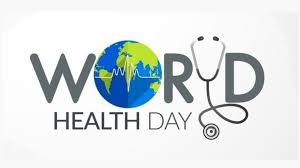Again, attention is being drawn to the global, precarious food situation and how it affects nations, especially Nigeria; SUNNY IDACHABA writes.
Food, they say, is one of the necessities of life; therefore every human needs it, but today, not every human being has access to quality food as several factors like war, famine etc have hindered easy access to food, but there are consequences.
It is against this background that attention is being drawn to what seems like a pandemic and need for food as the whole world marks the 2024 World Health Day celebrated annually on April 7.
Although this year’ theme is: ‘My health; my right,’ but in Nigeria, some medical experts used the occasion to ask the federal government to intensify efforts towards addressing hunger in the country and ensure access to affordable and quality foods for healthy living of the citizens.
Experts’ take
A consultant cardiologist at the Lagos State University Teaching Hospital (LASUTH), Dr. Ramon Moronkola, said to ensure healthy living, food should be taken in the right proportion of both quality and quantity.
According to the expert, there is an amount of food needed by the body, both adult and children, to sustain growth and development. He was of the opinion that access to a good and qualitative balanced diet is key to the health of the citizens; therefore, the government, he said, should endeavour to increase the purchasing power of the people to enable them to afford good quality food as well as a balanced diet at all times.
“The WHO has mentioned access to good nutrition as part of this year’s key components of WHD celebration. The quantity and quality of food affect brain development as a child grows. A child that is deprived of protein can develop different kinds of malnutrition disease like kwashiorkor.
“Even for adults, the quantity and quality of food to be taken are very important. If an individual takes a balanced diet with more intake of fruits and vegetables in the right proportion, it helps to prevent diabetes, hypertension and even development of cardiovascular diseases.
“It is very important to talk about this because the economic hardship we are seeing recently is making it difficult for people to have access to good nutrition. People don’t have access to food because food is expensive. Is it someone who has not been able to afford the basic food that would now be talking about ensuring the consumption of fruits and vegetables?
“So, the government should be bothered on the low purchasing power of the people and seek ways to increase it so that people can afford good quality meals,” he said.
As a quick way out of food insecurity, the government, he said, should ensure that farmers have access to good seeds and products that will yield abundant harvests in terms of quality and quantity of the produce.
“The government has a role to play in ensuring that food is available by ensuring that wherever the food is coming from, be it from the farm, it should be able to intervene because the health implication is that when people develop infections and diseases from abnormal food intake, the country would end up having a diseased population that would invariably overwhelm our health system.”
Speaking in the same direction, a medical imaging scientist, Dr. Livinus Abonyi, identified terrorism and poor regulated economy as factors responsible for food shortages in the country.
According to Abonyi, the economy has been poorly regulated resulting in ineffective management of the country’s financial system, leading to what he called the free fall and near-worthless value of the naira and ultimately uncontrollable inflation.
“To ensure food security in a vast and endowed country like Nigeria requires addressing two key factors ravaging the system. Major factors are terrorism and armed banditry. These particular factors are responsible for sacking most farmers from their farmlands, while others were killed and could not tell the story by themselves.
“Another crucial factor is the ineffective management of the Nigerian financial system. The cost of transportation is currently a factor in the movement of goods and services in Nigeria. It therefore implies that movement of farm produce where farmers have weathered the storm to farm against the threat of terrorists, kidnappers and bandits has become a debilitating challenge,” he said.
He said there was no justification for the government’s intervention in the form of loans, fertilisers or other inputs into agriculture when the security of lives and property of farmers cannot be assured.
“Security has to be ensured for the economy to thrive. Food production is a key component of the economy. If Nigeria is to depend more on importation of food products in order to feed the citizens, then anarchy is inevitable.”
Need to prioritise health
In a message to mark the World Health Day 2024, a former President of the Senate, Lawan Ahmed, has called on the federal government to prioritise health as a basic right of every Nigerian citizen.
He described health as a fundamental human right that should be enjoyed by all individuals, irrespective of their background and socio-economic status. He posited that access to healthcare services and safe living conditions are essential for maintaining good health and well-being while adding that healthcare systems and policies that promote health equity and initiatives that empower individuals to take charge of their own health should be of priority in Nigeria.
“The World Health Day 2024 presents us with yet another opportunity to reaffirm our commitment to promoting the theme of this year’s campaign: ‘My Health, My Right.’ The theme emphasises the importance of everyone’s right to access quality healthcare and to make informed decisions about their health.
“I believe that health is a fundamental human right that should be enjoyed by all individuals, regardless of their background or socio-economic status. Access to healthcare services such as clean air and water, nutritious food and safe living conditions are essential for maintaining good health and well-being,” he said.
Global reports
There is no doubt that global food insecurity has risen substantially since pre-pandemic times, exacerbated by extreme weather, climate change, war and conflict.
Because of this, international agencies have been sounding the alarm over surges in food insecurity that appeared to have plunged millions of people into extreme hunger, malnutrition and threats to their overall health.
This worrying trend was exacerbated by the Covid-19 pandemic, climate shocks and conflicts including the ongoing war between Russia and Ukraine and the crisis in the Middle East.
According to the Food and Agriculture Organisation (FAO) 2023 report on global food security and nutrition released months before the conflict in Gaza, some 735 million people faced hunger in 2022, an increase of 122 million people compared with 2019 pre-pandemic levels. The Caribbean, Western Asia and all sub-regions of Africa experienced the most alarming increases in these hunger levels. Worldwide, more than 3.1 billion people cannot afford a healthy diet, according to the report.
Since the Russia-Ukraine crisis began in February 2022, many countries that had relied substantially on Ukrainian grains for years have borne the brunt of food price inflation due to significant supply shortfalls. Russia is a major exporter of wheat and Ukraine is a significant producer of corn; prices for both crops spiked with the Russian invasion. Then the destruction of ports sent further shocks throughout global markets.
In Nigeria, during the 2022 planting season, between August and October, the country witnessed one of its worst floods in a decade. According to the statistics, more than 600 people died and more than 1.4 million people were displaced. Although the fatalities recorded in 2023 were far fewer than in the previous year, the crisis continued.
The back-to-back impacts of these floods present new challenges for farmers, who have barely been able to recover from the shocks of 2022.
In the present dispensation, while many Nigerian farmers and business owners affected by the 2022 floods are still struggling, they simultaneously have to contend with inflationary pressures and lingering hardships orchestrated by the removal of fuel subsidies by President Bola Tinubu who was elected in 2023.
In July 2023, the government consequently declared an immediate state of emergency centering on food insecurity to ameliorate the diminished food supply chain.
The government’s declaration further underscored predictions by international organisations that more than 25 million Nigerians could face acute hunger. That is why experts call for a focus on food over this year’s celebration is ideal
Need to empower women
In the meantime, the World Health Organisation (WHO) wants gender disparities in health sector leadership addressed
WHO’s regional director for Africa, Matshidiso Moeti, regional director for Africa stated this on the sidelines of the WHD 2024 celebration and the WomenLift Health Global Conference 2024, currently ongoing in Tanzania.
Moeti said the importance of implementing policies, programmes and human resource processes to empower women to step into leadership roles in promoting gender equity and harnessing the effectiveness of diverse leadership could not be over-emphasised.
She regretted that in spite of women constituting 70 per cent of the paid health workforce, leadership roles were predominantly held by men. She therefore advocated for policies that recognise the vital role women play in healthcare, social dynamics and the workforce, especially in leadership positions.
Addressing gender disparities in research opportunities and leadership roles, she stressed the need to recognise and address that, with a view to fostering inclusivity and maximising talents and expertise in advancing collective goals.




